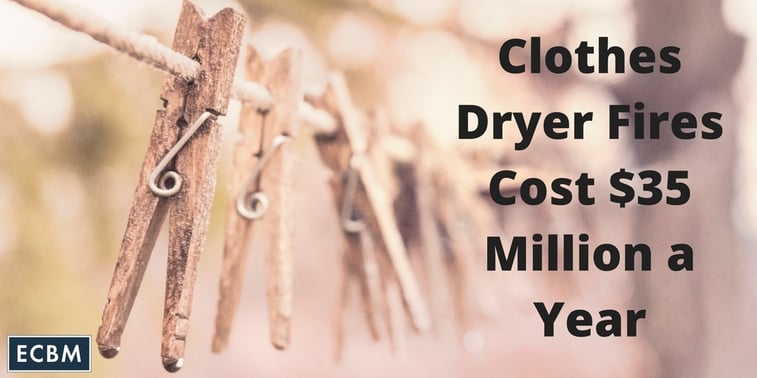
An estimated 2,900 clothes dryer fires in residential buildings are reported to U.S. fire departments each year and cause an estimated $35 million in property losses, according to a new government report.
The report by the U.S. Fire Administration (USFA) said that 84 percent of clothes dryer fires took place in residential buildings.
Also, according to the report, clothes dryer fire incidence in residential buildings was higher in the fall and winter months, peaking in January at 11 percent. Failure to clean was the leading factor contributing to the ignition of clothes dryer fires in residential buildings, this accounted for 34% of the fires. Dust, fiber, and lint and clothing were, by far, the leading items first ignited in clothes dryer fires in residential buildings, accounting for 55% of items ignited. Fifty-four percent of clothes dryer fires in residential buildings were confined to the object of origin.
The report, “Clothes Dryer Fires in Residential Buildings,” examines characteristics of clothes dryer fires in residential buildings and was developed by USFA’s National Fire Data Center, based on 2008 to 2010 data from the National Fire Incident Reporting System (NFIRS).
Damaging fires can occur if clothes dryers are not properly installed or maintained.
The report notes that lint, a highly combustible material, can accumulate both in the dryer and in the dryer vent. Accumulated lint leads to reduced airflow and poses a fire hazard. Reduced airflow can also occur when foam-backed rugs or athletic shoes are placed in dryers.
Small birds or other animals nesting in dryer exhaust vents are another hazard. A compromised vent will not exhaust properly, possibly resulting in overheating and/or fire.
To read the entire article and view the data, click here: http://www.usfa.fema.gov/downloads/pdf/statistics/v13i7.pdf


